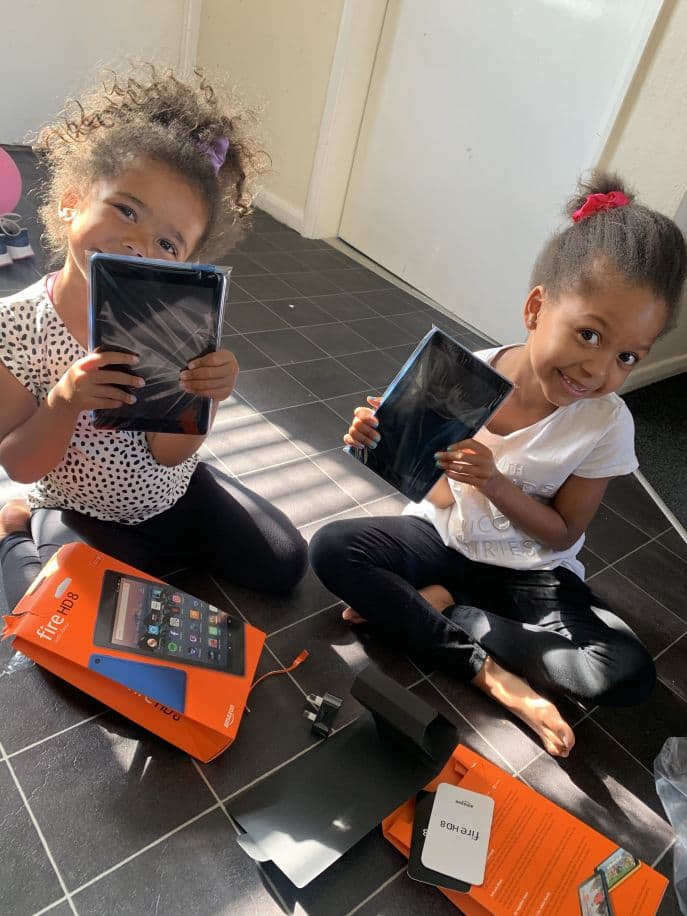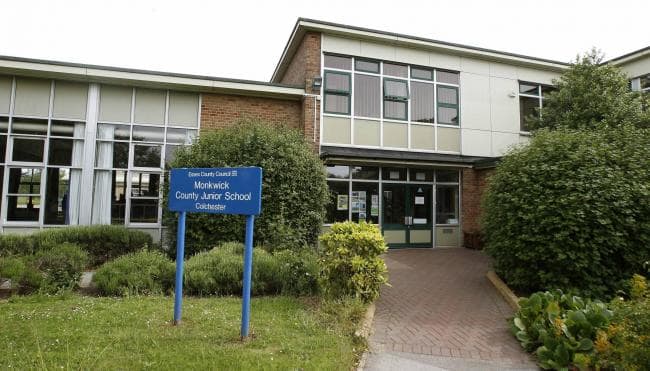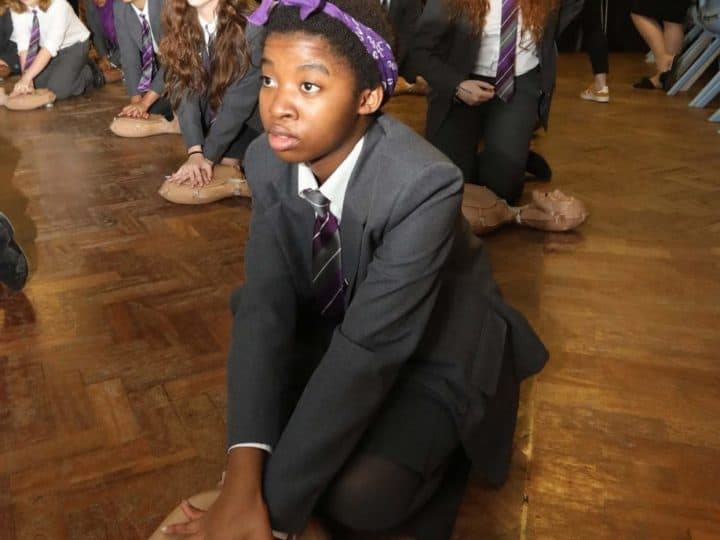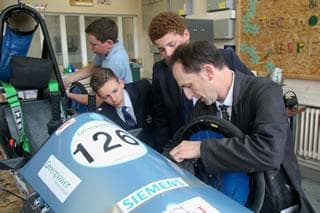
School reopenings – three headteachers reflect on lockdown and the positives they are taking away from it
As primary schools begin to welcome back larger numbers of pupils, staff from The Sigma Trust take stock of the last two challenging months
Matt Moseley, headteacher of Holland Park Primary in Clacton-on-Sea, Essex
The sense of trepidation was palpable.
People ushered forward to make sure they could hear what was being said.
Palms were visibly sweating. The atmosphere in the staffroom was one of hushed nervousness and uncertainty.
You might imagine that Ofsted had arrived, but nope… It was Wednesday 18th March and staff were huddled around a laptop watching the briefing delivered by the prime minister.
Fast forward two months and I’m not sure any of us sat in that staffroom could have foreseen the impact of that announcement which forced schools to close to most pupils – the impact on learning, mental health, planning; on almost everything.
And yet, from this has come some incredible positives that will surely have major implications for how we do things in the future when we return to ‘normal’.
I am a great one for ‘magpieing’ ideas from other people and when I heard one of the other schools in my trust had set up their own YouTube channel for pupils I almost turned black and white and started crowing!
After some googling and a few discussions with my more tech-savvy colleagues, the Learning with Holland Park Primary School YouTube channel was launched.
SLT are well-versed in humouring me when I make certain suggestions or propose ideas and the launch of the YouTube channel was no exception.
“Well, you won’t get me on there!” appeared to be the most common retort.
Nevertheless, I remained belligerent and started to put ideas together for the types of videos we could post.
Now our channel hosts more than 100 videos from staff, covering a range of topics and themes, from stories read in silly voices to informative maths tutorials, ‘how to’ art and music demos and even skipping challenges from the headteacher (I didn’t realise quite how tough it is to skip for two minutes!).
The channel has proved a massive success and has received fantastically positive feedback from parents and pupils.
And the vast majority of the reluctant brigade have posted on there. Another positive impact of the situation we find ourselves in is staff putting themselves out of their comfort zone to find new ways to engage and excite pupils.
So, how do we take this further now as pupils return to school? Does this mean the end of the YouTube channel? Surely not!
Our aim is to continue to use this medium to enhance our provision and find ways to engage and excite all pupils.
—
Rebecca McCutcheon, headteacher of Monkwick Junior in Colchester, Essex
When we said goodbye to the majority of our children, we didn’t really know what to expect of the weeks that followed.
Walking around the empty school felt completely surreal.
The weekly calendar in the staff room reflects the week we found out we were to close and the first week of the closure – almost like the school is frozen in time: a reflection of the meetings and events that didn’t happen.
The children we’ve looked after during lockdown have been brilliant and it has been lovely to get to know them in a more informal setting.
They’ve been mature and resilient and have their routine well set up. They just come in and run with it!
They have shown their independence by working through the home learning packages online, providing useful insight for the staff supporting them into how they can improve what that offer looks like.
Our families have been working hard to support their children with learning at home and to keep them engaged in other activities and family time.
It has been uplifting to hear how they’ve taken the time at home to do positive, happy things with the children.
My staff have also been excellent. They’ve planned fun activities to keep the children we see every day engaged; they’ve planned lessons to keep skills up for those children at home; they’ve responded to emails about the fantastic work our children have been completing at home.
Some staff have been contacting our families at home to check how they are and to offer a listening ear.
Others have been developing their own skills, ready to support our school community when we return.
—
Claire Holmes, headteacher of Monkwick Infant School and Nursery, Colchester, Essex
This week has been the hardest yet.
The tensions around reopening safely and the need to follow government directive has been one of the most challenging in my career.
So, we begin the risk assessments, the reorganisation of classrooms, school site and resources, the disinfecting, the ‘bubbles’ and the attempt to communicate the ‘new normal’ to our families.
We passionately want to reopen our schools; we know how much our children need school, but we will not put our communities at risk.
The weeks ahead will be emotionally and physically draining as we move forward and make sense of how to do this.
My previous role as headteacher of an infant and nursery school bears no resemblance to the one I do today.
Gone are the worries of school development planning, assessment deadlines, the phonics test and SATs.
Instead, I wake in the night to ever-increasing anxiety about how to safeguard my staff, children and community.
We have always been at the centre of our community, prided ourselves on our relationships with parents and carers and our ‘open door’ approach.
As we went into lockdown, I knew my team would be ready and dedicated to caring for them in a new role.
Supported by an energetic and brave family support worker and support staff who worked tirelessly in those early weeks, we set about our response.
Armed with newly-acquired mobile phones and email systems, we reached out to our vulnerable families.
We spoke to the children and listened to parents.
We delivered food parcels. We emptied the school kitchens, providing packed free school meals to those who needed them until our trust rapidly came on board with a voucher system to enable parents to get what they needed.
We printed and delivered to all those who needed us to.
Many families needed food bank vouchers in addition, which we got out in emergency situations when families were suddenly without income.
Making these deliveries was our way of seeing the children; they waved to us, danced for us and parents shared their circumstances and fears, all from a safe distance.
We signposted, listened, contacted other agencies and their teachers. I am grateful I lead a school where parents and carers are used to this ethos and relationships built upon trust now became evident.
Teaching staff became video stars, delighting us with their recordings of the children’s favourite stories.
We delivered home learning packs when technology could not be accessed.
We gave Kindles, donated to our trust by Teach First, to children without a device for home learning or for those in large families where the little ones were the last to get a go.
The whole school staff made a ‘missing you’ video and parents rang, moved to tears, to say how much the children loved it and missed us, too.
The weeks have passed, systems are secure, records are made of every contact and we are used to meeting virtually.
Safeguarding is our daily priority.
There have been highs and many lows. Families have reached out in crisis and in kindness.
We have experienced first-hand the aftermath of domestic violence and family breakdown in lockdown, as well as the joy of watching children come for their daily exercise and wave to us through the gates.
As a school leader, the bombardment of emails and information from the DfE, our LA and the unions need constant attention through the days and evenings. The advice within is often conflicting.
I am grateful to belong to a trust which has supported us throughout with clear direction and with the same ethos and commitment to supporting families as my own.
We meet regularly online, in our networks of primary heads and trust leaders, and work our way through each emerging decision.
We send emails late in the evening full of questions, shared responses and support for each other.
—
Emma Preston, Y5 lead at Alton Park Junior in Clacton-on-Sea, Essex
We have been offering children a variety of options for home learning, including our online learning platform Purple Mash, a daily online timetable and paper packs.
Teachers felt Purple Mash was the preferred method because it allowed us to see children’s work and give instant feedback, as well as allowing them to contact staff and friends in a controlled and safe way.
For the children who were engaging with it, it was proving quite successful.
We had children achieving higher scores in the work over time, writing and then editing great texts and practising basic skills in maths.
However, in the first week of phone calls home, it became clear there were a significant number of children who were unable to engage with Purple Mash due to lack of equipment.
Virtually all houses had internet, but lacked a suitable device.
When we heard Teach First was donating Kindles to schools, teachers made lists of those children who required one.
We had a large number of Kindles collected on the first day they were available. Parents were so grateful and the children were over the moon.
On that first day, during my lunch break, I checked Purple Mash and two of my class I’d given a Kindle to that morning were already on there completing work.
As the week went on, more and more of the Kindles were collected and more and more of the children appeared on Purple Mash for the first time.
The children were so excited to be on there and were sending their teachers and friends messages.
Not only will these Kindles have impacted on the children’s learning, they will have made a big difference to their emotional wellbeing.
For some children, it will have provided the first safe opportunity to communicate with their friends.
—
Jeff Brindle, CEO of The Sigma Trust, the largest multi-academy trust working solely within Essex
We know more than most people the challenges facing disadvantaged students if they are not in school.
But, we also know the challenge facing everyone if we do not get that right and the health issues which might come about and hit that same community harder than anyone else.
As a trust, we have been able to work together and provide additional capacity and support; that has been really evident to me during this crisis.
As a standalone headteacher, you would not have had any experience of this situation and would feel quite isolated. We are acting together which means there is some safety in numbers.
With schools in challenging circumstances because of the area they are in and the background they have been through, they know they have got a group of people around them who can all give them support.
That is absolutely vital.




